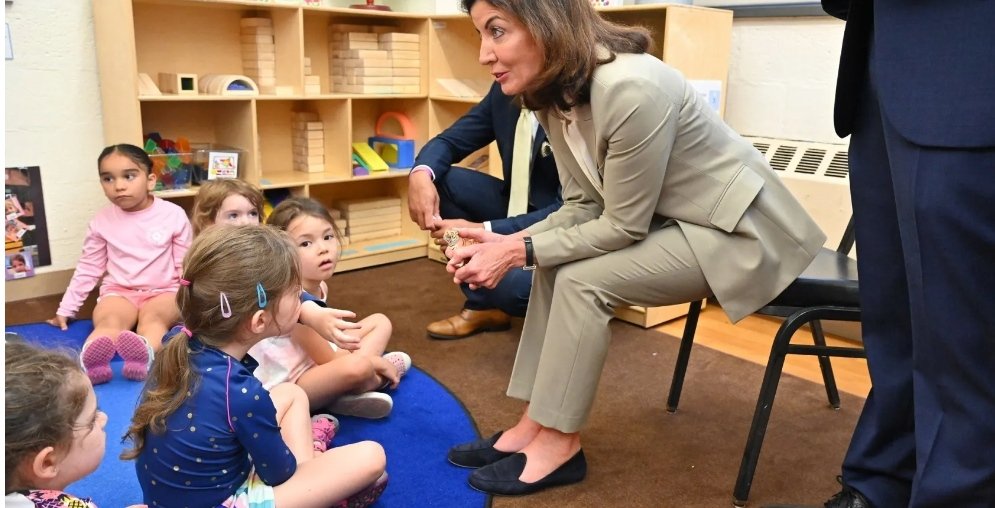Gov Hochul confirms NYC is expected to see nearly 3000 new child care slots this fall

Governor Hochul has confirmed Monday that New York City is expected to see nearly 3,000 new child care slots start opening this fall in areas considered “deserts” for such programs.
The state issued $70 million in grants to get new centers off the ground for this first round and are promising more to come, using money from federal COVID relief dollars. Of that money, nearly $17 million is going to 70 child care centers in New York City.
The grants are expected to help new child care providers in certain areas build programs by covering start-up and personnel costs, as well as with recruitment, training, and supporting staff in accessing COVID-19 vaccines, state officials said.
“Child care deserts” were defined as census tracts that have three or more children younger than 5 for each available child care slot, or no available child care slots. More than half of New York City is considered a child care desert, Hochul said.
Discussing her own experience as a young mom of having to leave her job due to lack of affordable child care, Hochul said the issue is personal for her.
“This really becomes not only an economic problem for families. It’s an economic problem for society,” she said at a press conference about the grant, held at the YM&YWHA of Washington Heights & Inwood.
“The women are the ones having to stay home.”
Many have yet to return, she added.
Nearly 60% of parents were unable to find child care as tens of thousands of programs shuttered, and more than a quarter of parents couldn’t afford existing programs, the commerce chamber found in a December 2020 study.
In terms of tackling affordability, Hochul previously announced an increase to the income threshold for families eligible for subsidized child care to $83,250 for a family of four, up from about $55,500.
That takes effect in August and is part of a larger $7 billion investment in the child care industry over four years.
Hochul acknowledged the dearth of options for nontraditional hours for many workers, such as medical staffers, restaurant workers, hotel cleaners, and bus drivers.
Of the 12,000 new slots opening over the next few months, 592 will be for infants and toddlers, while 500 will be for nontraditional hours, meaning between 7 p.m. until 6 a.m. as well as on major holidays like Labor Day, Thanksgiving, and Christmas.
New providers choosing to address those needs get a bonus award on top of their base grant.
“The child care workers are the essential workers for the essential workers,” Hochul said.
The state is still in the process of working with the grant winners on licensing them so does not yet have a final list of new centers.
About 1,700 applicants vied for this first round of grants. The next round earmarks $30 million in federal grant funding to help existing programs in child care deserts expand their offering for day care centers as well as school-age child care programs, with incentives for those working with infants and toddlers, children with disabilities, and programs that have nontraditional hours.
Applications for that round are open through Aug. 4, according to the state.
For another application round due by Nov. 30, the state has earmarked another $343 million in federal funds to help stabilize the industry.







